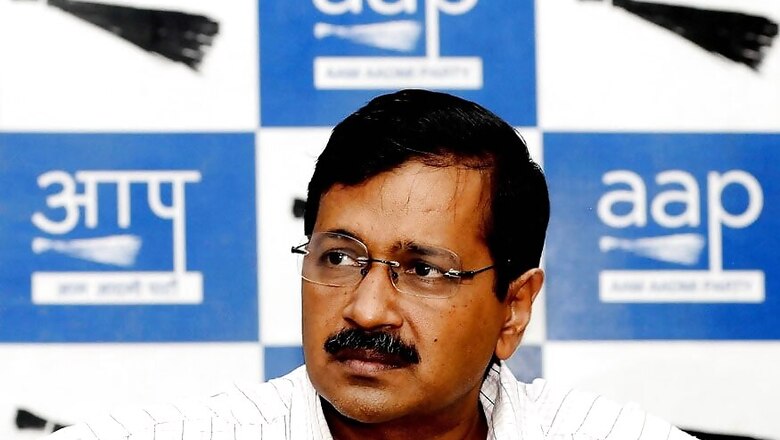
views
New Delhi: The Aam Aadmi Party (AAP) government in Delhi is on an aggressive overdrive, announcing populist measures almost every week, and Chief Minister Arvind Kejriwal is certainly already in campaign mode.
While Kejriwal has announced many radical policy interventions, the ones on extending the electricity subsidy and free rides for women in Delhi Transport Corporation (DTC) buses and the Delhi Metro have been the most significant. Ahead of winter, when the Capital braces for outbreaks in vector-borne diseases and literally holds its breath in the face of surge in air pollution, the AAP government’s attempt has been to show that it is on emergency mode on these fronts.
With elections around the corner, and a BJP that is on a historic high, the AAP certainly cannot be caught napping. Signaling a change in track, especially in communication, the AAP chief has shed his image of an aggressive combatant in the battlefield charging in to take on Prime Minister Narendra Modi and the BJP government, confident of the weapons in his arsenal, strength of his team and support of the aam aadmi.
Kejriwal, on this cusp of history, is not the angry young man, not the Amitabh Bachchan in the seasons of Zanjeer, Coolie and Deewar’s ‘yeh police station tumhare baap ka ghar nahi’, but instead a gentle, aam aadmi-friendly Amitabh Bachchan as the host of ‘Kaun Banega Crorepati’. Kejriwal is not the general who calls upon the common man for support in his fight against corruption but the benevolent and caring administrator who is struggling to make life easier for people. The party’s hopes lies here.
Take, for instance, the high-pitch campaign against the vector borne diseases — "10 Hafte, 10 Baje, 10 Minute". The essence of the campaign is two-fold — simplicity and Kejriwal's personal push. The chief minister's Twitter feed is replete with pictures of changing stagnant water not only in his house but also in his office. Videos that show him carrying a bucket as he moves from one place to another, looking to eliminate the breeding ground of the dengue mosquitoes, try to indicate it goes beyond tokenism.
आज शुक्रवार है। सुबह 11 बजे मैंने मेरे दफ्तर की चेकिंग की और साफ पानी बदल दिया। इस साल विशेषज्ञों ने कहा था डेंगू खतरनाक होने की आशंका है। लेकिन दिल्लीवालों की मेहनत रंग लाने लगी है और अभी तक दिल्ली ने डेंगू को नियंत्रित रखा है।#10Hafte10Baje10Minute pic.twitter.com/VfgGcDLnJ9— Arvind Kejriwal (@ArvindKejriwal) 20 September 2019
Apart from advertisements on television and newspapers, the AAP chief has also taken the campaign literally to the houses of people. Last Sunday, Kejriwal visited people’s homes simply to ask if they have given 10 minutes to cut the risk of dengue and chikungunya. While on Twitter, the social media campaign has tagged well-known names, elicited a response and become a talking point, significantly among a class where the AAP confronts maximum criticism and non-acceptance.
Lakhs of Delhiites are joining the #10Hafte10Baje10Minute campaign against Dengue This Sunday, after inspecting your home at 10 AM, call 10 of your friends and encourage them too to inspect their homes and be a Champion in the fight against Dengue! pic.twitter.com/rpDQX33Obz— Arvind Kejriwal (@ArvindKejriwal) 19 September 2019
Sharing the back story of this campaign, Delhi Dialogue Commission vice chairperson Jasmine Shah says, “Unlike most other parts of the country, the number of cases in Delhi has drastically reduced from 15,867 in 2015 to 2,798 in 2018 — a drop of 80%. This is a result of proactive action by all public agencies — Delhi’s health departments, municipal corporations led by the chief minister, and the people of Delhi. But this year, the Delhi government was forewarned by health experts that cases of dengue disease, being cyclical in nature, are expected to shoot up. That is when the chief minister decided that we needed a mass public awareness campaign where all stakeholders of the city join hands — citizens, Resident Welfare Associations (RWAs), public leaders, celebrities, and government agencies.
आज संडे है। याद है, आज आपको अपने घर की चेकिंग करनी है कि कही डेंगू का मच्छर तो नहीं पल रहा? मैंने अपने घर की चेकिंग कर ली। आपने की? मैं अब कुछ लोगों के घर जा रहा हूँ, पूछने कि क्या आपने चेकिंग की? हो सकता है आप के घर आ जाऊँ।#10Hafte10Baje10Minute pic.twitter.com/7BqqoMcdgS— Arvind Kejriwal (@ArvindKejriwal) 15 September 2019
Shah disagrees that it is a political campaign. “It is a public health campaign involving each and every citizen of Delhi, it is a campaign to show that Delhi can lead the way in fighting Dengue, if everyone comes together,” he says.
But does one bring everyone together? “We looked at the past successful campaigns globally and the Earth Hour stood out where at a fixed time around the world, everybody takes action together. Then chief minister decided that 10 minutes every Sunday is what the call to action for every resident of Delhi should be… hence the '10 Hafte, 10 Baje, 10 Minute' campaign. The weekly schedule was planned on the advice of health department that a dengue mosquito needs eight days to breed,” adds Shah.
"The campaign relies heavily on people cleaning their own houses. It is the need of the campaign, unless people are involved, departments are involved, this will not succeed, that is why the government aims to involve people, now the government will also involve school children," says AAP spokesperson Saurabh Bhardwaj, clearly laying out the priority for the government — prevention and saving lives.
Inspected my office in Delhi Secretariat to check for any source of Dengue in clean stagnant water.All Delhi govt officials, led by Chief Secretary Sh Vijay Kumar Dev ji also inspected their offices today.I appeal to everyone to join this campaign pic.twitter.com/SWLkbxQW1z— Arvind Kejriwal (@ArvindKejriwal) 6 September 2019
But does this also work as a political campaign? Bhardwaj says, "As a political campaign, this is more of a campaign which brings middle class as well as the lower income groups together to work as a united Delhi, the gain is the chief minister is directly appealing to the people and people appreciate this involvement."
Similarly, with its seven-point action plan aimed to tackle the winter air pollution that sees a surge due to stubble burning in the neighbouring states of Punjab and Haryana, the AAP government has tried to convey its seriousness about the health of Delhi citizens. Careful not to claim the sole ownership for Delhi’s marginally improved air quality, Kejriwal has stolen a lead in the fight against pollution.
The announcement of implementation of the ‘odd-even’ scheme has certainly provided the government with a talking point and is bound to engage people, again, more among the middle classes. It is expected that Kejriwal and his Cabinet will also abide by the rules as before. Additionally, the AAP government will also distribute masks on a mass scale to ensure additional protection to individuals.
The decision, coming after three years and just ahead of the elections, also has the potential to maximise the advantage politically. Public health campaigns can also be healthy, unifying and positive political campaigns and that is what the AAP and Kejriwal are hoping to achieve.












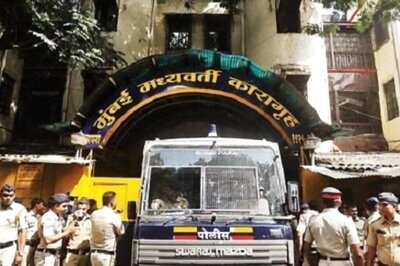
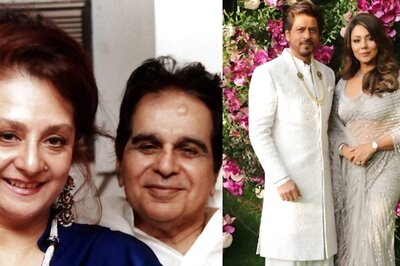



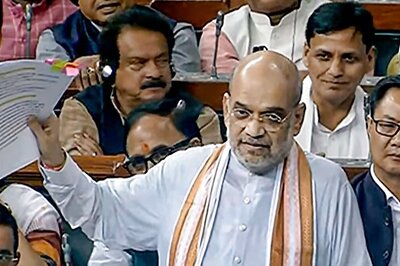
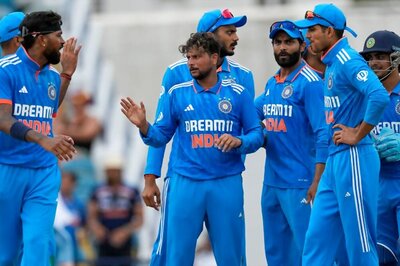
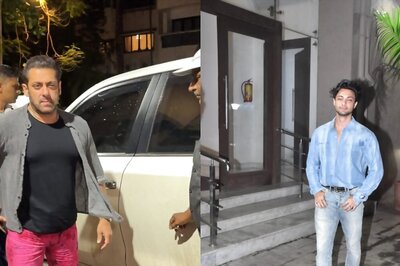
Comments
0 comment